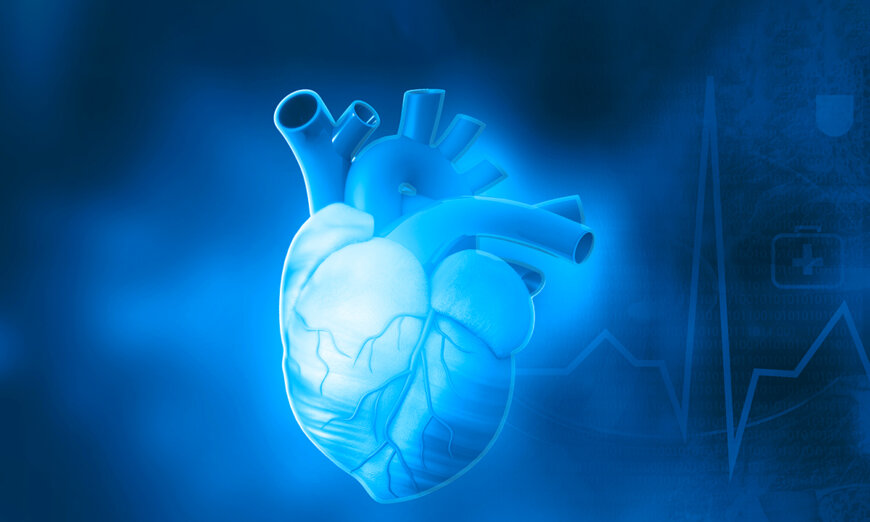COVID-19’s Lingering Threat: A Surge in a Rare and Dangerous Heart Condition
Both infection with COVID and vaccination are associated with increased heart risk. Are we looking at a potential heart disease epidemic?
The specter of COVID-19 has loomed large over the last three years, infiltrating nearly every aspect of life. But even as new variants continue to emerge, the pandemic’s aftershocks may be felt for years to come in a dangerous way—through a spike in a heart condition that, if left untreated, may lead to heart failure.
The Link Between COVID-19, Heart Inflammation, Heart Attacks, and Young People
The new multicenter, retrospective study examined over 8,000 COVID-19-positive patients aged 18 and older. Researchers compared in-hospital mortality and ventilator support rates between those diagnosed with myocarditis and those without.
Myocarditis was detected by testing for elevated levels of troponin-T (TnT) and brain natriuretic peptide (BNP)—both of which are a proxy for heart damage.
Of the 8,162 PCR-confirmed COVID-19 patients from Jan. 1 to May 14, 2020, 20.1 percent, or 1,643 people, developed acute myocarditis after infection. They also faced significantly higher risks of requiring ventilation and dying than those without myocarditis.
“Myocarditis is a serious and potentially fatal complication of COVID-19,” the authors concluded.
While many patients had preexisting conditions like hypertension and chronic heart disease, myocarditis appeared to be a new complication of COVID-19 infection specifically.
Underlying heart failure—linked to cardiomyopathy, a heart disease that makes the heart inefficient at pumping blood—also nearly doubled mortality risk among hospitalized patients.
- 29.9 percent for adults aged 25 to 44.
- 19.6 percent for adults aged 45 to 64.
- 13.7 percent for adults aged 65 and older.
Changes COVID Causes That May Lead to Heart Failure
A study from Columbia University examined heart tissue from COVID-19 patients. Researchers found concerning cellular changes, including dysregulated calcium signaling, oxidative stress, inflammation, and cell death.
Calcium is critical for proper cardiac contractions. The researchers found COVID-19 disrupted calcium channels in heart cells, which can spur arrhythmias or heart failure.
Analysis of mouse models revealed additional COVID-linked damage like immune cell infiltration, collagen deposits indicating heart injury, blood clots, and protein changes mirroring those seen in COVID-infected human heart samples.
Doctors should be aware of heart changes related to COVID-19 infections and should be looking for them, Dr. Andrew Marks, a cardiologist and biophysics professor at Columbia University and study coauthor, said in a press statement. “We want to really figure out what’s causing the heart disease and how to fix it,” he added.
Preventing Hospitalization Is Key
Dr. Sharon Nachman, chief of pediatric infectious diseases at Stony Brook Children’s Hospital, explained what these findings mean for most people worried about the long-term effects of COVID-19.
“This study specifically looked at cardiac inflammation at the time of the person’s acute COVID, meaning that they came to the hospital with new-onset COVID and were ill,” Dr. Nachman said. “Based on these findings, preventing COVID hospitalizations would have also prevented the significant cardiac inflammation, and thus worse outcomes from COVID.”
According to Dr. Nachman, the risk is particularly severe for infected people with preexisting cardiovascular conditions.
Vaccination and Myocarditis Risk
The U.S. Centers for Disease Control and Prevention (CDC) has acknowledged a rare link between COVID-19 vaccination and heart issues, specifically myocarditis and pericarditis, inflammation of the lining around the heart.
This association has been observed through multiple monitoring systems globally, particularly with Moderna and Pfizer mRNA vaccines.
While both COVID-19 and the vaccines are likely to remain part of people’s lives, their long-term impact on heart disease incidence remains uncertain.
This article has been archived for your research. The original version from Epoch Times can be found here.





